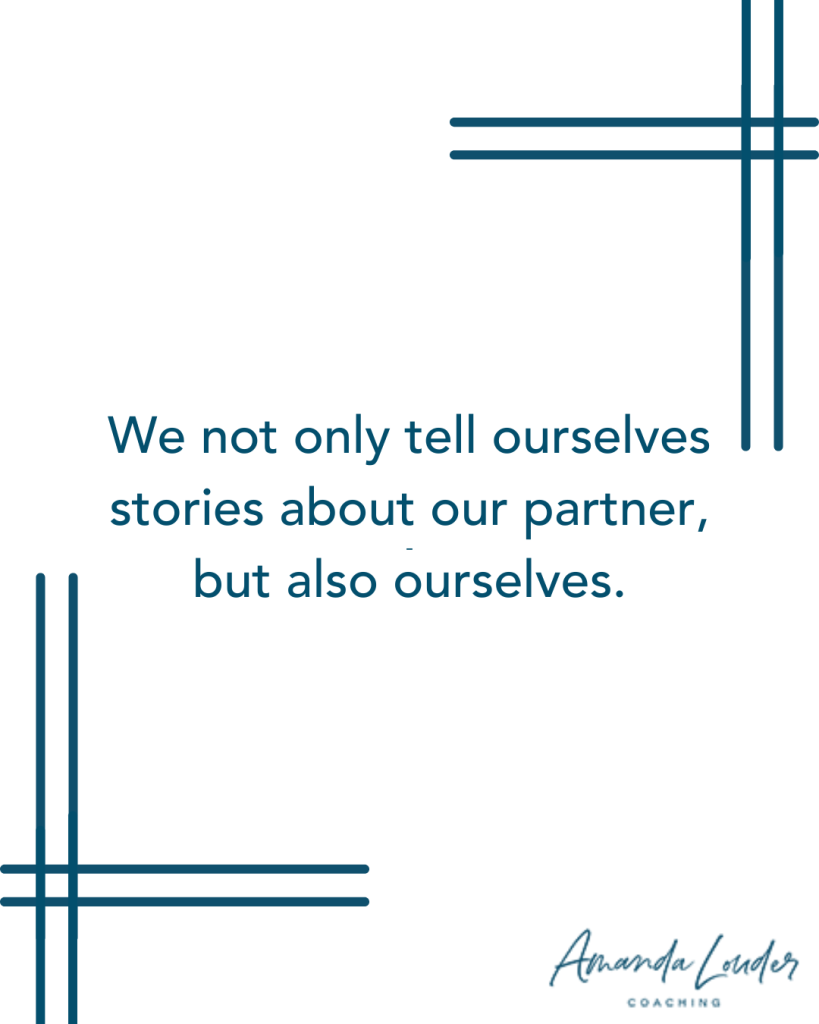
When it comes to life, our perception is our reality. And these perceptions also shape our sexual relationships. Unfortunately, we often look at these perceptions as facts rather than realizing that they are an interpretation of facts. So, in this episode, we are going to talk about our perceptions, how they are shaped, and what those perceptions create in our sexual relationship. I specifically talk about the perceptions that we have around being the lower desire partner or the higher desire partner and our spouse in their role as well. Let’s talk about why it’s good to be aware of our perceptions and try to change them in some instances.
Show Notes:
Follow Amanda on Facebook and Instagram.
Join Amanda’s Private Facebook Group.
Show Summary:
When it comes to life, our perception is our reality. And these perceptions also shape our relationships. Yet we often just look at our perceptions as facts rather than realizing that they are an interpretation of facts. So today, I want to talk about our perceptions, how they are shaped, and what those perceptions create in our sexual relationship. And specifically the perceptions that we have about being the lower desire partner or the higher desire partner and our spouse in their role as well.
So first, let’s talk about perceptions. They are powerful. They shape the way we interpret our spouse’s actions, our sexual relationship, and even our self-worth. When we perceive our partner in a positive light, we’re more likely to feel satisfied and secure in our relationship. Conversely, negative perceptions can lead to dissatisfaction and conflict.
So how are our perceptions shaped? Our perceptions are influenced by a variety of factors, including past experiences and outcomes, culture, conditioning, internal beliefs and biases, communication patterns, our inherent personality, trauma, and even our current emotional state. Let’s explore these factors in more detail:
The environment we grew up in plays a significant role in shaping our perceptions. If our family communicated openly about sex and intimacy, we might have a more positive and healthy view of these topics. Conversely, if sex was a taboo subject or associated with guilt and shame, we might carry those negative perceptions into our adult relationships.
Our personal relationship history, including past relationships and sexual experiences in other relationships or the current one, can heavily influence how we perceive things. Positive past experiences can foster a healthy and open attitude towards intimacy, while negative experiences, such as betrayal or rejection, can lead to mistrust and fear.
Media, religious teachings, and societal expectations can shape our views on sex, gender roles, and relationships. For instance, if society teaches that men should have higher sexual desire than women, any deviation from this norm in our relationship might be perceived as a problem, even if it’s perfectly natural.
Our internal beliefs and biases, formed by our experiences and the information we consume, can create a lens through which we view our relationship. These beliefs might include ideas about what a “normal” sexual relationship looks like, how often couples should have sex, or what constitutes a healthy sexual desire.
Understanding how our perceptions are shaped can be incredibly helpful in navigating our relationships. Here’s how it can help and hinder us:
Helps:
- Increased Awareness: Recognizing the sources of our perceptions can help us understand why we think and feel the way we do, allowing us to address any negative influences.
- Empathy and Compassion: Understanding that our partner’s perceptions are also shaped by their experiences and background fosters empathy and compassion.
- Positive Change: With awareness, we can actively work to reshape negative perceptions and replace them with more positive, constructive ones.
Hinders:
- Entrenched Beliefs: Deeply ingrained perceptions can be difficult to change, especially if they’re reinforced by long standing beliefs or past trauma.
- Misunderstandings: If we’re not aware of how our perceptions are shaped, we might misinterpret our partner’s actions and intentions, leading to conflict.
- Resistance to Change: It can be challenging to shift our perceptions, especially if they’ve been a part of our identity for a long time.
A lot of what we do in coaching is about working to understand how our perceptions have shaped our sexual relationship and then I teach a systematic approach to changing them, which we will talk more about later.
One of the things that I think gets in the way of a good sexual relationship is the stories that we tell ourselves about lower desire and higher desire partners. These stories can have a profound effect on our relationships, for better or for worse. So, let’s talk about what these stories are, how they can help or hinder our relationships, and how we can shift our perspective for the better.
For example, if you perceive your spouse’s lower sexual desire as a personal rejection, it can create feelings of inadequacy and resentment.
Here are some common stories I hear from higher desire partners about the sexual relationship:
- They’re not interested in me anymore.
- They don’t find me attractive.
- They don’t care about our intimacy.
- Maybe they are getting it elsewhere.
However, if you view your partner’s lower desire as a natural variation in sexual desire that has nothing to do with your attractiveness or their love for you, you’re more likely to approach the situation with compassion and understanding.
If you are the lower desire partner, you might tell yourself stories about your higher desire partner like:
- They’re never satisfied.
- They only want me for sex.
- They don’t respect my boundaries.
- Porn made them this way.
- They are just giving in to their carnal desires.
- They are too needy.
- They only care about themselves
However, if you view your partner’s higher desire from a more positive place it could sound like “They’re passionate about our relationship.” “Their higher desire shows much they value me and our relationship.”
We not only tell ourselves stories about our partner, but also ourselves. The most common one I hear from both higher desire partners and lower desire partners is that they think something is wrong with them because they either want sex so much or they don’t want sex at all.
All of these stories, whether from the higher desire partner or the lower desire partner, often stem from insecurities, misunderstandings, and societal expectations about what a “normal” sexual relationship should look like. They may also arise from past experiences or cultural influences that shape our views on sex and intimacy.
The stories we tell ourselves can either bring us closer together or create distance in our relationships. Positive perceptions encourage us to understand our partner’s needs and feelings. We become more empathetic and supportive, fostering a deeper emotional connection. When we see our partner’s intentions as good, we’re more likely to communicate openly and honestly, addressing issues constructively rather than defensively. Viewing our relationship positively helps build trust and a sense of security, which are essential for a healthy and fulfilling sexual relationship.
Negative perceptions can lead to misunderstandings and misinterpretations of our partner’s actions, causing unnecessary conflicts. When we perceive our partner’s behavior as intentionally hurtful or dismissive, it can breed resentment and emotional distance. If we constantly perceive our partner’s actions as a reflection of our worth, it can erode our self-esteem and create a cycle of negative self-perception.
To improve our relationships, it’s crucial to shift our perceptions from negative to positive. Here are some steps to help with this process:
- Challenge Negative Thoughts: When a negative thought about your partner or relationship arises, challenge it. Ask yourself if there’s another way to interpret the situation. What other explanation could there be?
- Focus on the Positive: Make a conscious effort to focus on your partner’s positive qualities and the strengths of your relationship. This doesn’t mean ignoring issues but approaching them from a place of positivity and a willingness to address it and work on it together.
- Communicate Openly: Share your feelings and perceptions with your partner. Open communication can clarify misunderstandings and help you both see things from each other’s perspective. I like to say “When you do this, the story that I tell myself is…”
- Practice Gratitude: Regularly express gratitude for your partner and your relationship. This practice can shift your focus from what’s wrong to what’s right.
Our perceptions significantly shape our reality and impact the health of our sexual and emotional relationships. By fostering positive perceptions, we enhance understanding, communication, and trust, creating a more fulfilling and loving partnership.
Thank you for joining me today. I hope this episode has given you valuable insights into how our perceptions shape our reality and how we can shift them to strengthen our relationships. Coaching is a great way to help both you and your partner identify and change these harmful stories and create a stronger sexual relationship.
Remember, love is a journey, not a destination. Stay committed, stay passionate, and stay connected. Goodbye for now.





